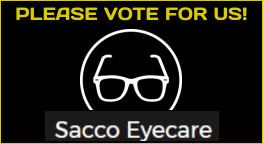The Grammarnator can’t resist returning when the Insider raises, on facing pages of the same issue, the perennial problem of how to punctuate a sentence containing “but.” I refer to the articles on obesity and on the coolness of Concord in the Mary Baker Eddy issue. The former has “all the money was originally going to the C.H.A.D. foundation but, now the money is going to a club member in need.” The latter presents “I was born in New Hampshire, but grew up in the Seattle area. . . .”
The winner is Katy Brown Solsky, returned to the Granite State after those benighted years in the Northwest, for if there is any ironclad rule about punctuation, it’s that the comma always precedes “but.” I can remember this rule by recalling that great Gershwin song “They’re Writing Songs of Love But.” Wait a minute; that’s not the title. It’s called “But Not for Me.” And that tells us that but belongs in the second part of the opening line: “They’re writing songs of love, but not for me.”
If this is too esoteric a reference, consider “Amazing Grace.” No one would think of unbalancing the vocal line by singing “I once was lost but” and following it with “now am found.” The meter demands an even distribution of four syllables and two beats in each half of the line: “I once was lost, but now am found.”
These two examples clearly establish where the comma goes. Why, then, is its misplacement the error that teachers see perhaps more than any other, at all levels of education? My theory is that the culprit may be the simplistic belief that commas indicate pauses in speech, when it would be much more enlightening to think of them as marks that separate units of syntax (there’s a future column). Let me illustrate the kind of pause that lies behind this mistake.
“I’d really like to help you out on this, but –” And here the speaker pauses. One of three things is likely to happen in that pause:
– It becomes a stop, and the speaker shrugs his shoulders and gives a plaintive look to the one with whom he is conversing.
– The listener jumps in with a consoling “Yeah, yeah, I know, it’s OK.” (Actually, Grammarnator, we Insiders just use “okay” instead of OK. -Ed)
– The speaker goes on after his pause, in an apologetic tone, with “uh, well, you see, I’ve got a lot on my plate just now.”
The pause after that but comes about because the speaker really doesn’t want to finish the sentence. He hopes that a or b will rescue him before he has to resort to c, and because the pause is there in his speaking, he assumes a comma gets put in if the dialogue is committed to print. As you see, however, there is a perfectly appropriate punctuation mark for that pause. It’s a dash (“I’d really like to help you out on this, but – ”), AND A COMMA STILL GOES BEFORE THE BUT.





















